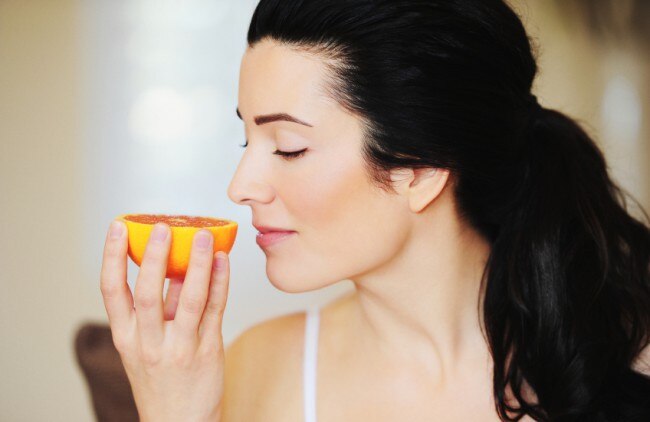What are antioxidants? Antioxidants like beta carotene, vitamin C, vitamin E and selenium can help protect you from “rusting”? In essence, that’s what they do inside your body. Antioxidants protect healthy cells from free radicals—substances that can damage your DNA, cell membranes and other tissues. Your body doesn’t actually rust, of course, but it does something similar when exposed to free radicals.
Where do they come from? Free radical production is triggered by many things, including exposure to sunlight and even just the acts of breathing or digesting food. The good news is that your body uses a wide variety of antioxidants as one of its protective mechanisms against these harmful compounds. You can ingest antioxidants through your diet—they’re found in copious amounts in foods like whole grains, beans, fruits, vegetables and animal-derived foods.
Skin support
Sunlight generates free radicals, and it can cause your skin to age more quickly with unprotected exposure and excessive sunbathing. To avoid sun damage, always wear a hat, sun-protective clothing, and a good sunblock to help prevent UV rays from harming your skin.
It’s also a good idea to fill your diet with foods rich in beta carotene, a well-known antioxidant.* This natural plant pigment is found in fruits and vegetables such as carrots, dark green leafy vegetables, Romaine lettuce, sweet potatoes, squash, red peppers, dried apricots, peas and broccoli. You can also take beta carotene in supplement form. A typical dose is 25,000 to 50,000 IU a day of mixed carotenoids. (Note: Unlike vitamin A, beta carotene is not toxic when taken in high amounts over a long period of time.)
Immune support
Drinking orange juice and adding chopped tomatoes to your salad are easy ways to get more vitamin C, a critical nutrient that not only plays a part in immune health but is also a powerful antioxidant.* Vitamin C is found in many foods, but is highest in citrus, papayas, peas, guavas, broccoli, dark green leafy vegetables, tomatoes and strawberries.
If you’re considering adding a vitamin C supplement to your regimen, look for a complex that also provides bioflavanoids, which are nutrients found in the pulp and rinds of citrus fruits that also have antioxidant properties. Because some people experience digestive issues when taking vitamin C supplements, consider a buffered form that’s gentler on the stomach, and adjust your intake to your comfort level.
Overall health support
Vitamin E is another antioxidant you don’t want to do without. Abundant in spinach, almonds, sunflower seeds, avocados, butternut squash, olive oil and fish, vitamin E can reduce the damage free radicals cause to the body, while also supporting eye health and a healthy blood system in the body.*
Look for a vitamin E supplement with mixed tocopherols. Tocopherols (and tocotrienols) are components of the vitamin E family found in plant oils and cereal grains such as oats, barley and rye. They’re believed to work synergistically to protect cell membranes and DNA from the damaging effects of free radicals.*
Finally, selenium—a trace mineral—is a key antioxidant that’s been studied extensively and recognized for its importance in health.*Selenium is found in grains, nuts, vegetables and animal protein. But remember that for grains, nuts, and vegetables to contain selenium, the plant must have been grown in soil that was rich in selenium to begin with—a good reason to choose organic!
The following foods are known to be among the best sources of selenium when grown in selenium-rich soil: Brazil nuts, sunflower seeds, whole rye, whole wheat, and mushrooms. Sources of animal protein highest in selenium include chicken, turkey, beef, lamb, pork, cooked oysters and fish. You can also take selenium as a supplement; a typical amount is 200 mcg a day.
When it comes to optimizing your health, make sure you’re getting plenty of antioxidants. They can help give your entire body an extra edge when it comes to your health and vitality –and also help keep your tissues from rusting!
*These statements have not been evaluated by the FDA. These products are not intended to diagnose, treat, cure or prevent any disease.

